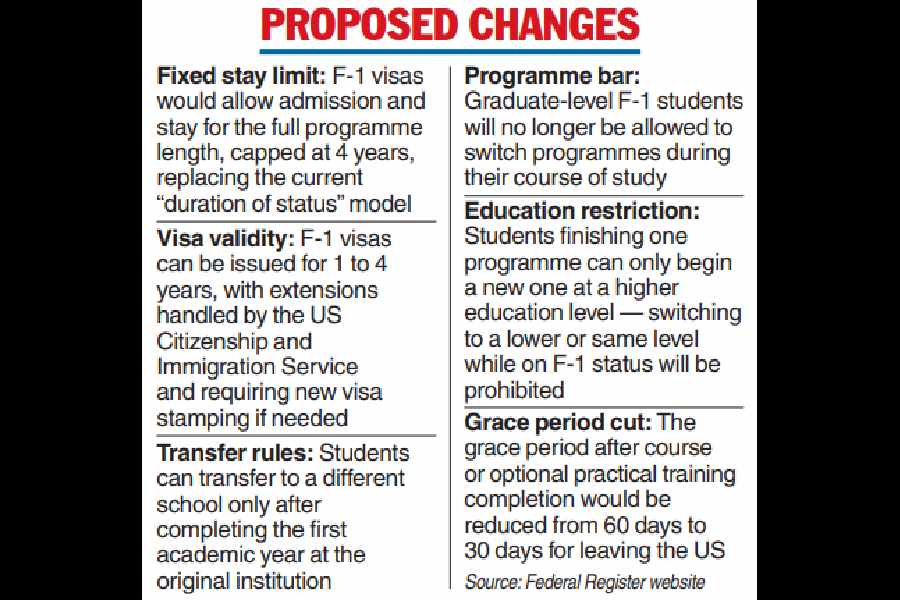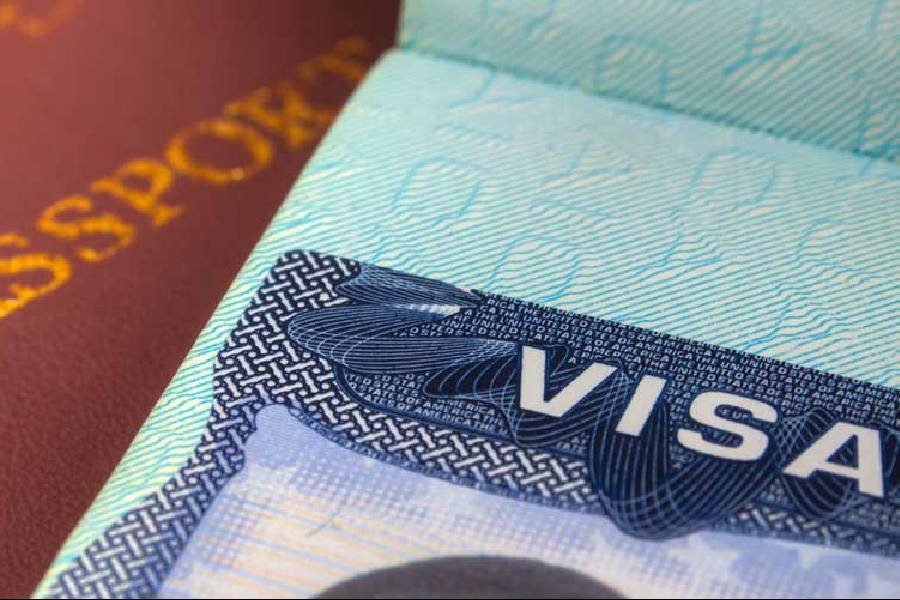The US administration has proposed sweeping changes to its student visa policy, a measure academics and educational consultants believe would deter Indians from planning higher education in American universities.
The department of homeland security (DHS) has sought public comments on the proposed “Establishing a Fixed Time Period for Admission and Extension of Stay Procedure for Nonimmigrant Academic Students, Exchange Visitors, and Representatives of Foreign Information Media”. (See chart)

The DHS said the proposed rules, if finalised, would limit the time certain visa holders, such as foreign students, are allowed to stay in the US, thereby curbing visa abuse and increasing the department’s ability to vet and oversee these individuals.
“For too long, past administrations have allowed foreign students and other visa holders to remain in the US virtually indefinitely, posing safety risks, costing untold amount of taxpayer dollars, and disadvantaging US citizens,” a media release said, quoting a DHS spokesperson.
Since 1978, foreign students (F-1 visa holders) have been allowed to stay in the US for an unspecified period known as duration of status. Visa holders in this category can remain in the US indefinitely without further vetting.
“In turn, foreign students have taken advantage of US generosity and have become ‘forever’ students, perpetually enrolled in higher education courses to remain in the US. Under President Trump’s proposed rule, the federal government would set the authorised admission and extension periods for foreign students and exchange visitors up to the duration of the program they are participating in, not to exceed a four-year period,” it said.
Fuqan Qamar, former vice-chancellor of the Central University of Himachal Pradesh and an expert in international education, said Indian students plan their education abroad based on multiple factors, including the quality of education and income opportunities.
With a fixed-term F-1 visa, post-study income opportunities in the US will be extremely limited. There is a demand for changing the H1B visa policy to allow people with a certain salary to get it.
“Indian students look at American universities for the quality of education, internship, income opportunities during and after completion of the course. Some students use this route for permanent migration too. If the US implements the proposed changes to students’ visa policy and tightens the H1B visa regime, Indian students will be forced to give up plans for higher studies in the US,” Qamar said.
He said if the student visa is linked to the duration of the course and extendable with renewal, the Optional Practical Training (OPT), the work authorisation programme that allows international graduates to work in the US for a year or up to three years in STEM fields, will become a casualty.
“The post-study internship and OPT will be greatly affected. The work culture and training in US industries are also a major reason for Indians to go to US universities. By limiting opportunities, the US industries will also struggle to get a qualified workforce,” Qamar said.
Jessy Joseph, manager of Loyala Global Careers, an agency based in Ireland, said the proposed new rule may compel thousands of international students — especially from India — to rethink how they structure their educational pathways.
“Students enrolled in integrated Master’s, research, or other long-term programmes may face disruptions, and shorter visas and delays in obtaining extensions may affect OPT eligibility, making it harder to plan internships smoothly,” said Joseph.
“While the US remains a top destination, Indian students should prepare for higher costs, more paperwork and stricter compliance requirements under the proposed rules. These developments may also encourage students to consider alternative destinations like Canada, Ireland, Australia, or EU countries, which currently offer more predictable post-study work options and stable visa regimes,” said Joseph.
According to a document uploaded on the Federal Register website, explaining the proposed changes in the student visa policy, there were over 1.6 million admissions in F-1 status in 2023, a dramatic rise from when the legacy Immigration and Naturalisation Service first shifted to the Duration of Status admission in 1979. In 1980-81, there were approximately 2,60,000 admissions under the F-1 status.
At present, many international students take admission to high-ranking universities for easier visa stamping and quickly change to less expensive institutions. Many students pursue multiple Master’s or degrees at the same level of education without getting a new visa. These practices will now come to an end.











